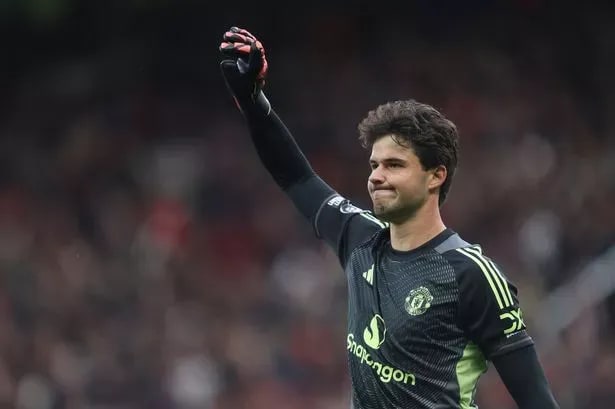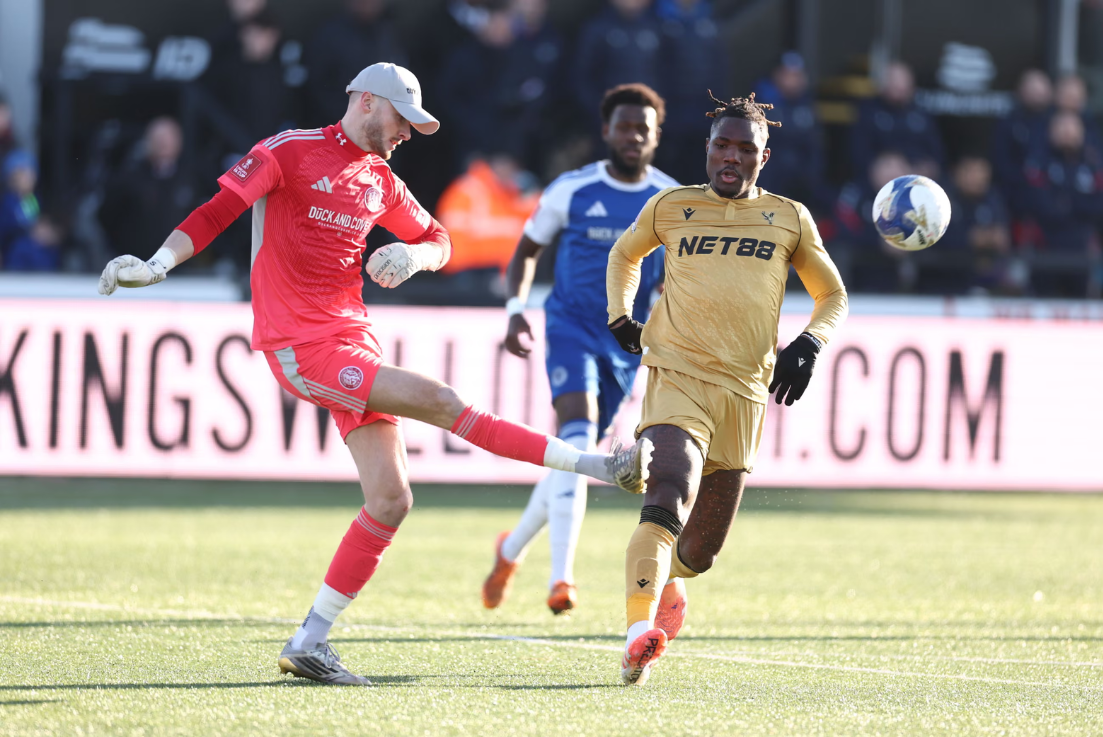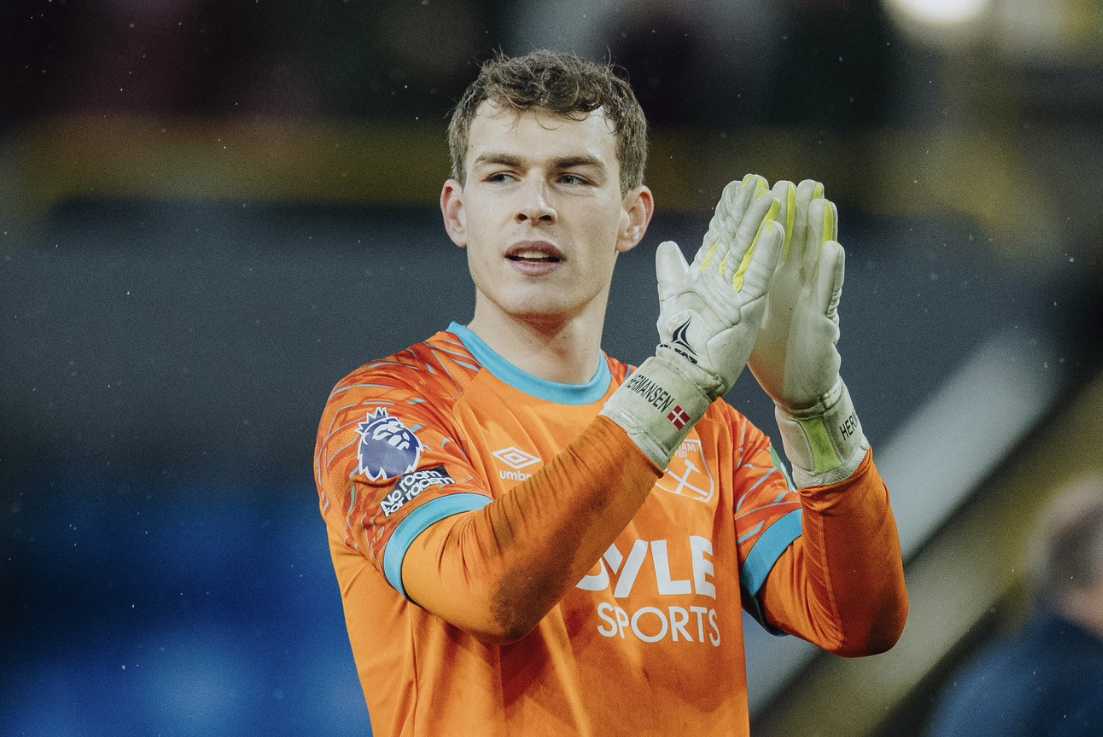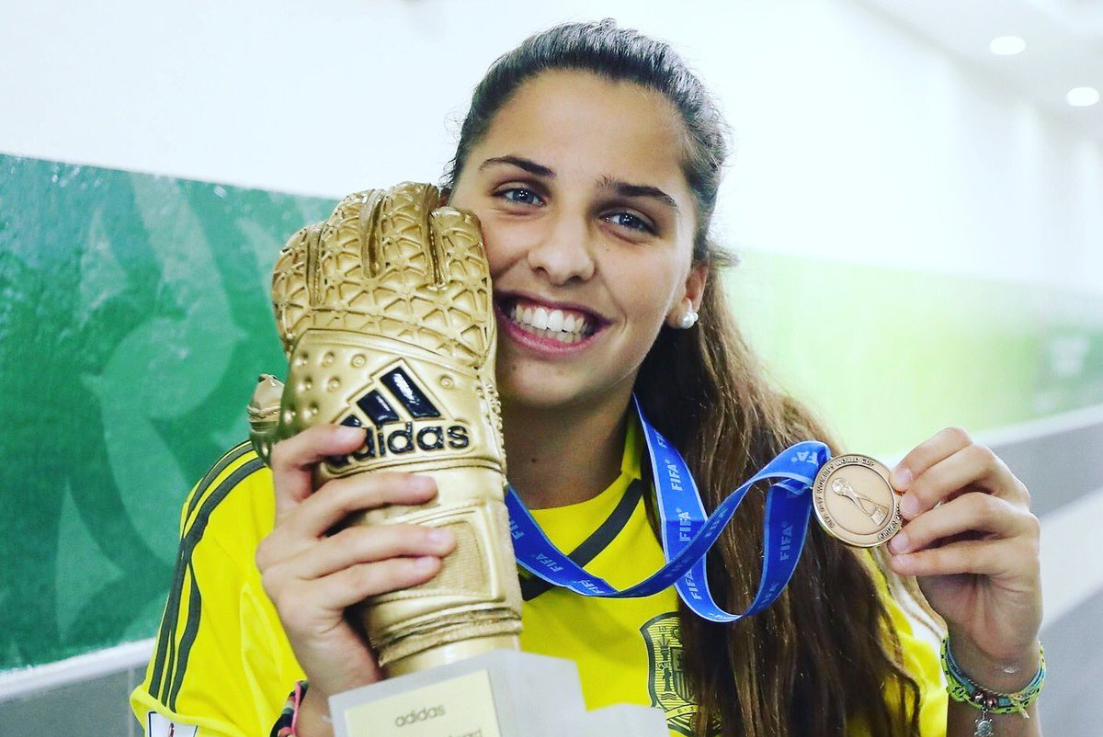Current AS Monaco goalkeeper coach Frederic De Boever discusses his time working with Manchester United's Senne Lammens, and the secrets behind his early development.
Header image: Phil Oldham/Shutterstock
You only have one opportunity to make a first impression. As a 17-year-old goalkeeper, the first impression Senne Lammens gave me was very, very memorable.
I had only been at Club Brugge for a few weeks when I first worked with him, but straight away I recognised a lot of things in him that would fit the methodology that I prefer as a goalkeeper coach and like to see in a goalkeeper. First of all, his personality. That was crucial.
Straight away, that tells me how you deal with a certain situation, and I'm not even talking about pressure, just how you deal with that certain situation in the moment: what is your approach with the person you just met and how interested are you? Do you show interest in the other person as well? That was for me, very, very impressive, what I saw from Senne as a young boy.
After that, it becomes about taking steps and, for me, there were five really important reasons that Senne could make these kinds of steps in his career.
First of all, I identified his potential straight away and I went to the first team coach at that time, Philippe Clement, to ask if Senne could start working with the first team. That meant he skipped a level because he was not part of the group of the second team, he went straight to the first team and I think that was very, very important for him - to receive that opportunity to test himself.
The second factor for me was that Senne had a really, really good environment for work on a daily basis. Big applause for Club Brugge, there. They had new training facilities which were, for me, for sure, the best in Belgium at that time. Even in Europe it was top, to be honest. A Belgian club who have those kinds of facilities indoor and outdoor, it was impressive. To have the opportunity as a young boy to work in those facilities, you always step up. You are more motivated to do the job, you have all possibilities on the pitch. Great pitches, the gym was quality, so were the video meetings, so he came into an environment for top professionals at that time.
Then he also had the opportunity straight away to work with some fantastic goalkeepers. The moment I arrived was also the moment Senne stepped up from the Under-18s to the first team, but also exactly the same moment that Simon Mignolet made his transfer from Liverpool to Club Brugge. We all had the privilege to work with each other, but Senne, as a young boy, was working every day with Simon, with Ethan Horvath who was also an American international.
If you can work with those guys, you steal with your eyes.
Those two goalkeepers were, at that time, a true example of professionalism on and off the pitch and they brought an amazing quality in the training sessions, so if you're 17 and step up to work on a daily basis with Simon and Ethan, that's a huge gift that you're receiving in your development. Not everybody can work with that quality as a youth goalkeeper, so he stole with his eyes. And Senne's intelligent. He recognised the opportunity that he had in front of him.
The third development which, for me, was vital was that we changed a lot of the methodology of goalkeeping in the club. We went into much more detail, not only technical but also tactical. We brought it also on the pitch; exercises which were really, really game-related. We went much more to dynamic exercises instead of only static exercises for goalkeepers. It was, of course, something completely different but I think if you talked to Senne now and asked if he remembered the goalkeeping aerobic work he did in Brugge, straight away he would start laughing! I'm 100 percent sure of that because it was something new for him but at the same time he became an all-round athlete by doing this kind of work. This was really important.
Similarly, we took a lot of time to work and to go through video. After every game or training session, we had the opportunity to talk about it and we created a really good base for being game intelligent as a goalkeeper. Senne is hugely intelligent and he took it straight away, he absorbed everything and that was, for me, one of the crucial points of his talent: that he's so open-minded and eager to learn that he absorbed everything.
We were talking then about the four pillars of goalkeeping. It's about positioning; game-reading – recognising the situation – and it's also about decision-making – what decision do you make in the moment you recognise the situation – and, of course, the fourth pillar is the execution. So, we constantly – after every game he played – were making the analysis about those four pillars. It wasn't just a one-way direction from me as a coach asking him; it was really a conversation and he was asking question after question after question. What is good? What can I do better? He started analysing himself also and did it by using those four pillars. He made a lot of progress through this.
At the same time, we also spent a lot of time on his individual work. I can remember that Club Brugge bought a really, really good ball machine and we spent hours in front of that – how to catch the ball straight away, not to always use two touches. So his ball handling was made by practicing for hour after hour. The block, the dynamic of the static block in one-v-ones, became one of his signatures. He's really good in one-v-ones.
We worked on this for hours, on and off the pitch. Dealing with aerial balls, talking about details…we went really into details which were not only catching, but how are you going to catch, how are you going to assess the situation? I think that Senne is so smart that he took it straight away, that kind of behaviour. I think the step to bring him into that kind of daily environment was, for him, vital.
Finally, we spent a huge amount of time on the use of both feet. The use of his left foot became a vital part of the progression he made.
Then at a certain point, I think that's the next step in the career. After you made the progression in training sessions, it's time to deliver top performances in the correct moments. That for me was also a crucial part that he has done excellently with in his career so far, not only in Brugge but from his professional debut with the second team of Club Brugge in the Belgian Second Division, and a season later for the first time in the Supercup against KRC Genk. Later, in Antwerp, and more recently with Manchester United.
When everybody was watching, he already performed in very, very difficult circumstances to make his debut. That shows quality. That's something that you can’t always talk about or review - you just need to go out and do it.
Then for me the fifth factor is about the steps in your career; what is the choice of the clubs or the coaches you work with? Who do you surround yourself with? I talk about managers, about the people around you, all those things, I think everything has to come together and a lot of times a goalkeeper makes himself. Senne is, for me, an example of a self-made goalkeeper because everybody who worked with him, on and off the pitch, everybody who surrounded him in his daily life, made Senne, to be honest - but that’s a result of his own choices.
It's very difficult for me as a coach to say that I recognised something and realised that Senne Lammens could go all the way. It's such a big process and it takes so much time that everything has to fit into the correct moment together.
But it all starts with that first impression.









